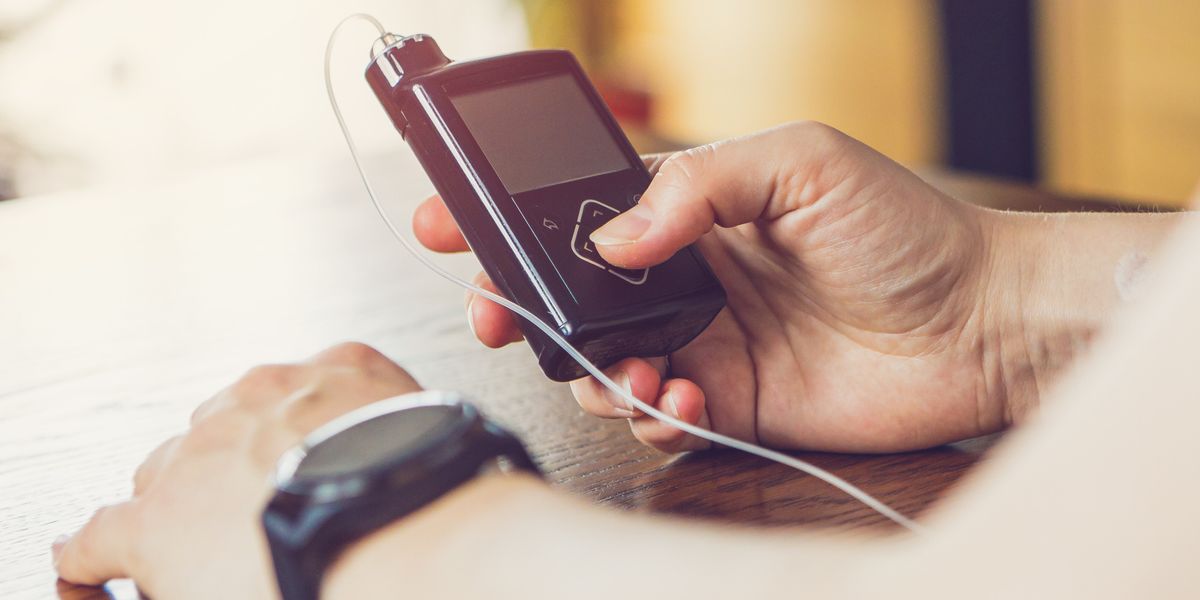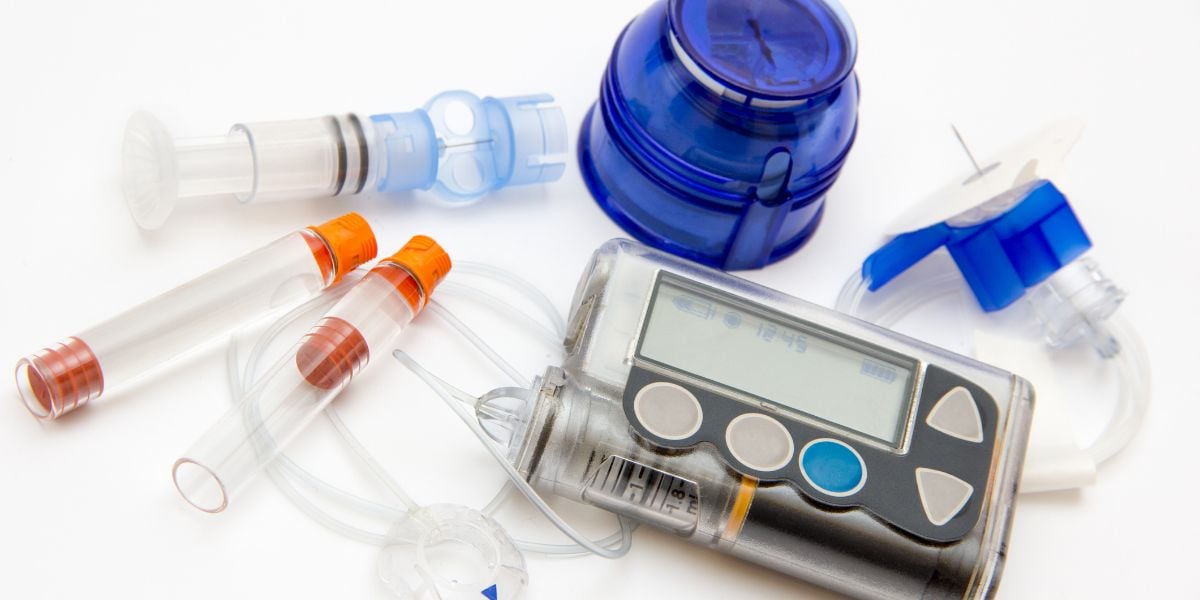Insulin pump therapy, also known as continuous subcutaneous insulin infusion (CSII), involves wearing a device (insulin pump) which provides a steady stream of insulin into your body.
An insulin pump has advantages in that it allows the wearer to take instantaneous action to help increase or decrease blood glucose levels.
- Read our guide to Insulin Pumps
Am I eligible for going onto insulin pump therapy?
If you have type 1 diabetes, you may be eligible to go onto insulin pump therapy but you will need to meet certain eligibility criteria to be considered.
People with type 1 diabetes who are over 12 years old may be considered for an insulin pump if:
- Attempts to achieve the target HbA1c levels on a basal-bolus regimen results in repeated and unpredictable episodes of hypoglycaemia that is detrimental to your quality of life.
- Or if a basal-bolus regimen has not been able to reduce HbA1c levels below 8.5% (69 mmol/mol) despite a high level of care having been put into controlling blood glucose levels.
Under 12s with type 1 diabetes may qualify for insulin pump therapy if a basal-bolus regimen is deemed to not be practical nor appropriate.
People with type 2 diabetes are not eligible for insulin pump therapy under the NICE guidance. [53]
Staying on an insulin pump
The NHS will expect people on who are over 12 years old on an insulin pump to achieve better diabetes control as a result of being on a pump.
Evidence of good control will include demonstrating that the pump has improved your HbA1c levels since going onto insulin pump therapy, or if the number of hypos you experience has reduced.
Benefits of insulin pump therapy
The benefits of insulin pump therapy will usually include having better control of diabetes including reducing HbA1c levels or reducing the number of hypos
The ability to increase, decrease or suspend insulin delivery gives the wearer of an insulin pump the ability to raise or decrease blood glucose levels on demand.
For example, if you are taking part in sports, you may choose to suspend your insulin delivery to prevent hypoglycemia from occurring.
Changes to insulin delivery will need to be supported by a good understanding of your body’s insulin requirements for different activities and frequent blood glucose testing
- More on the advantages/disadvantages of insulin pumps vs multiple daily injections







